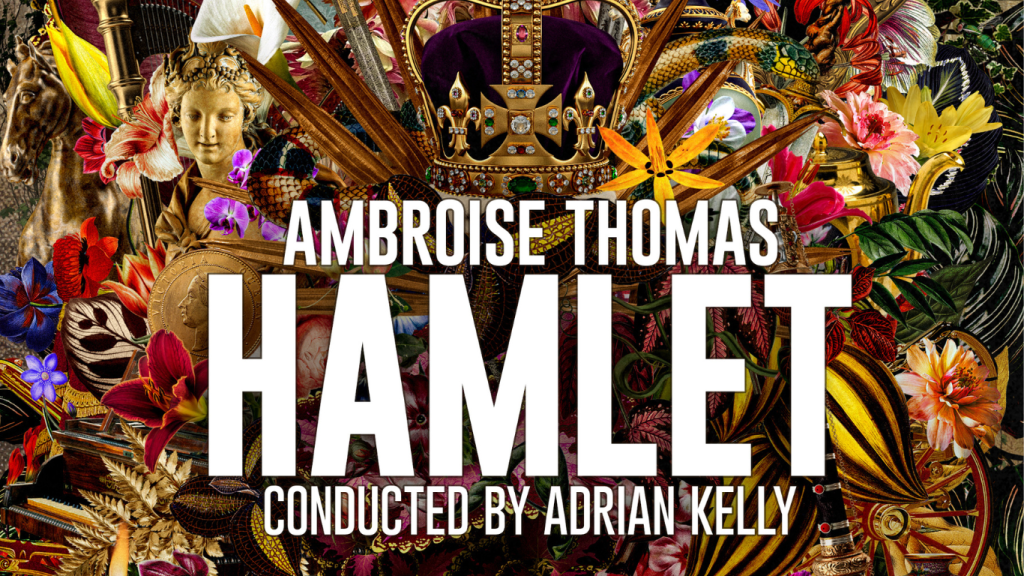We talked to Jack Furness about Hamlet, gothic horror and the thinking behind the production. Jack is increasingly sought after for his bold vision, conceptual clarity, and emotionally intense productions. Known for his work in contemporary and site-specific opera, Jack’s recent credits include Irish National Opera, Scottish Opera, Garsington, Edinburgh International Festival, and Buxton. He’s also the founder and Artistic Director of Shadwell Opera, one of the UK’s leading contemporary companies.
What themes in this opera do you think speak most directly to today’s world?
I don’t seek that when I am directing a show. Firstly, I try and make sense of it for myself. And then inevitably every new production of a piece is going to speak in some way to the time in which it is being made. I’m a 21st century person so I am going to see things in the piece a 19th century person wouldn’t have seen or be interested in. As an audience member you find things for yourself, things that resonate or draw parallels with the world today.
People bring many things into the theatre with them. You don’t know what you are going to stir inside someone or how they are going to interpret what they see. Also, people surprise you with what they see and with what they DON’T see. Relevance and resonance is so personal. I just make the show and what people take away from it is up to them.
Are we allowed any insight into the time period or aesthetic style you’ve chosen for this production, and why?
As it happens we do have Hamlet in contemporary dress because it felt like the right thing but what is more pertinent to me is what genre we are in. And what relationship does that genre have with the opera? This Hamlet is not set in a particular place and time but it is a dialogue with the gothic. What does the gothic look like today? This felt like a really interesting and meaty challenge.
It’s a bringing to life of what Hamlet did to the 19th century French imagination. It’s very gothic and mournful; like a big funeral march. There’s an enormous sense of space and dread and foreboding. The proto-Gothic elements of Shakespeare’s play are heightened and increased, particularly in the character of Ophelia. I’ve just embraced the piece for what it is and we’ll have great fun with it.
How do the big moments – Ophelia’s mad scene or Hamlet’s drinking song – shape your direction? If at all?
You can look at Ophelia’s story through a gothic lens. To quote Linda Charles and her book, Shakespeare and the Gothic Strain, “the inner experience of Ophelia is famously underrepresented in the play. If one were to rewrite it as a narrative, it would read like Gothic fiction: a vulnerable young woman sequestered in a cold, dark castle by her domineering father and brother, and misled by overtures of affection from a dashing nobleman who turns out to be untrustworthy. Ophelia’s psychological experience is condensed into her singing scenes: romance gone horribly wrong resulting in madness, hysteria and symptomatic repression.” In the opera, one of Ophelia’s mad scenes culminates in her death and she is elevated so she is on an equal par with Hamlet. That has influenced things a great deal.
The drinking song is not the only reference to intoxication. In the opera, everyone is getting drunk all the time! And I can see why… the succession of Hamlet should have been straightforward but we are watching the immediate moment after a coup has happened and Claudius’ regal power is cemented instead. That moment is fraught with danger. Everyone is living in a burgeoning surveillance state – if I don’t toe the line and support Claudius, will I be dragged off and disappear?
I think it’s a plausible reaction that all the people in the opera abdicate their sense of political responsibility for the proper functioning of the country and console themselves with drink. It’s a way of numbing the fear and the awareness of their own complicity in a coup.
We’ve been thinking a lot about Trump coming back into power in the USA. What must the feeling be like when you are seeing democratic norms being eroded and you are powerless to do anything about it? What are you going to do? Probably get drunk! I think Hamlet’s drinking song is to play along with that atmosphere in order to hide his own political intentions.
Thomas Ambroise’s Hamlet alters major elements of the original — notably, the ending.
The ending is a secret. I don’t want to rob the audience of experiencing the theatrical effects we have up our sleeves. We are being faithful to the opera – and to Shakespeare – that’s enough of a teaser.
Finally, why should we come and see BIF’s production of Hamlet this July?
We’ve got a great cast, beautiful singers and the music is absolutely amazing – so atmospheric, so moody and interesting. Hopefully we are going to make a really distinctive show with a very particular tone and it will be a truly moving and thought-provoking experience for people.
Step into a world of gothic intrigue, power, and passion. Book your tickets now for Hamlet here!


 Thomas Ambroise’s Hamlet is a Grand Opera – what does that mean?
Thomas Ambroise’s Hamlet is a Grand Opera – what does that mean?